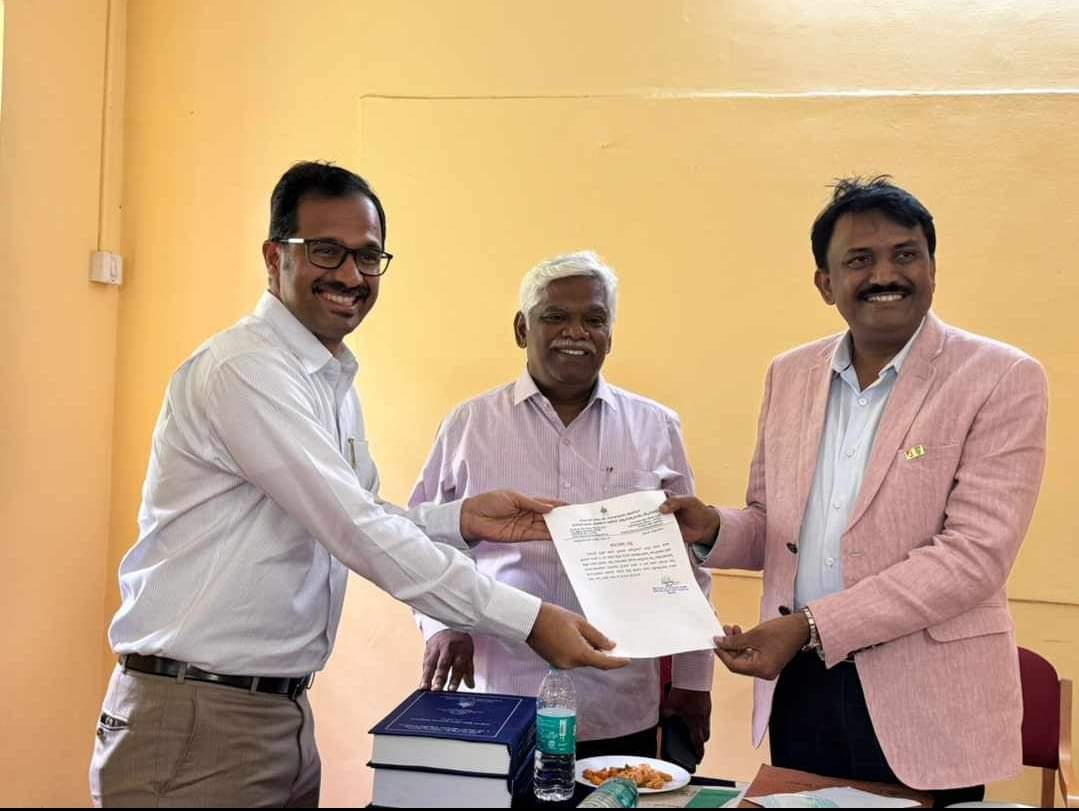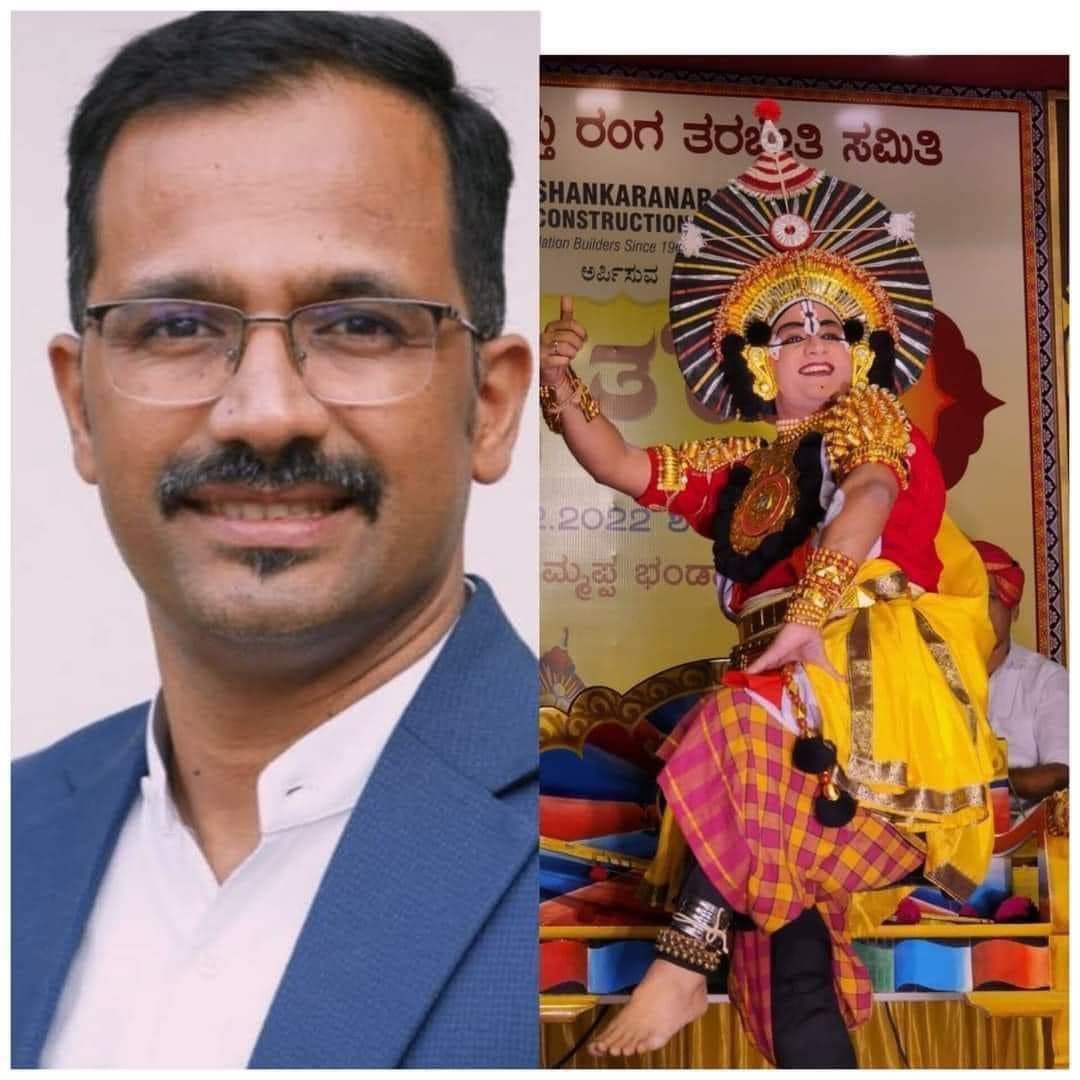In a significant development for the traditional performing arts of coastal Karnataka, Deepak Shetty, Barkur has been awarded a Ph.D. by the esteemed Dr. Gangubai Hangal University of Music and Performing Arts. His doctoral thesis, titled "An Evaluation of the Economic Conditions in the Field of Yakshagana," marks a pioneering effort to analyze the financial sustainability of this centuries-old art form.
 Passionate about this artform since early childhood Dr. Deepak Shetty, a native of Bandhimatha, Barkur presents an intriguing blend of professional backgrounds. While his formal education is in Mechanical Engineering and he currently holds the position of Deputy General Manager at the prestigious Toyota company in Bengaluru, Deepak's passion lies in preserving and promoting Yakshagana, often referred to as the "masculine art form of the coast." He has learned and performed in various presentations of this artform at various places.
Passionate about this artform since early childhood Dr. Deepak Shetty, a native of Bandhimatha, Barkur presents an intriguing blend of professional backgrounds. While his formal education is in Mechanical Engineering and he currently holds the position of Deputy General Manager at the prestigious Toyota company in Bengaluru, Deepak's passion lies in preserving and promoting Yakshagana, often referred to as the "masculine art form of the coast." He has learned and performed in various presentations of this artform at various places.
For his doctoral research, Deepak embarked on a comprehensive study of Yakshagana's history, mythological foundations, and its evolution over time. His methodology was notably thorough, involving extensive interviews with veteran artists and an in-depth field study of the Yakshagana ecosystem. The research spans experiences across three generations, providing a rich, multi-dimensional perspective on the art form's journey.

The primary objective of Deepak's research is to address a crucial aspect often overlooked in discussions about traditional arts - economic sustainability. His thesis argues that the survival of both the artists and the art form itself is intrinsically linked to financial stability. By focusing on the economic dynamics of Yakshagana, Shetty aims to contribute to the long-term preservation of this unique cultural heritage.
In his thesis, Deepak explores various facets of sustainability in the Yakshagana field. He emphasizes the roles played by different stakeholders:
1. Artists: The primary creators and performers who keep the art alive.
2. Troupe Owners: Those who manage and finance Yakshagana groups.
3. Organizers: Individuals and organizations responsible for arranging performances.
4. Audience: The spectators who support the art through their patronage.
5. Government: The role of state support in nurturing and preserving the art form.
Deepak's's work is particularly noteworthy for its holistic approach. By considering the interplay between these various stakeholders, he presents a comprehensive picture of the economic ecosystem surrounding Yakshagana.
The award of this Ph.D. is not just a personal achievement for Dr.Deepak Shetty but also a significant milestone for Yakshagana studies. It brings academic attention to the often-neglected economic aspects of traditional performing arts. As Yakshagana, like many other classical art forms, faces challenges in the modern era, studies like Shetty's provide valuable insights for policymakers, art patrons, and practitioners alike.
This research opens up new avenues for discussion on how traditional art forms can be made economically viable without compromising their artistic integrity. It also underscores the need for a collaborative approach involving artists, organizers, audiences, and governmental bodies to ensure the sustainable future of Yakshagana.
As the news of this achievement spreads, it is hoped that it will inspire more interdisciplinary research in the field of traditional arts, bridging the gap between cultural preservation and economic sustainability. Dr.Deepak Shetty's work stands as a testament to the possibility of harmoniously blending one's professional career with a deep-seated passion for cultural heritage.
